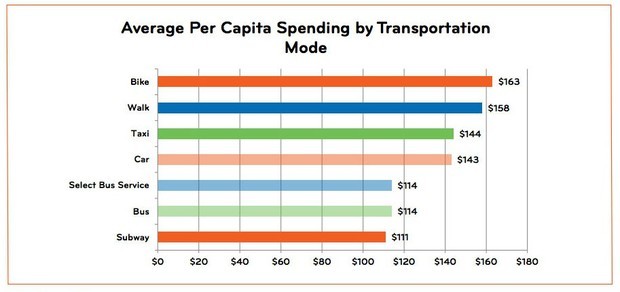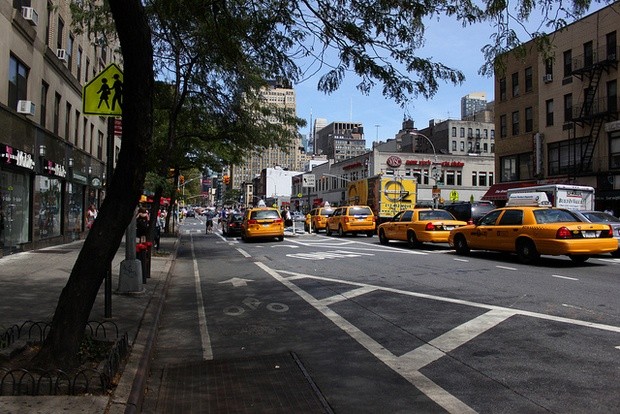For one, bike lanes are actually really good for the local economy.

It’s time to move beyond the misguided war between bikes and cars. Doing so requires all parties on urban streets to acknowledge that city mobility is a collective problem without an either-or answer. In the spirit of a healthier such discussion, we’ve culled from this excellent list of anti-bike arguments that should be put to rest, compiled by Lindsey Wallace at streets.mn, as well as a recent longer list from Adam Mann in Wired.
1. Cyclists break the rules
If breaking the law is a knock against cyclists, then it’s a knock against everyone who uses city streets. Some bike riders do run red lights (though it’s often because the signal doesn’t recognise them) or pop onto the sidewalk (though it’s often because they don’t have bike lanes). Then again, drivers are no strangers to blowing lights—one in 10 run reds in New York City—and doing so is the most common cause of crashes in U.S. cities.
So sure, some cyclists are just jerks. That’s true of any group of humans. What must be recognised with regard to bike riders is that much of what’s mistaken for jerky behaviour is better attributed to the frustrations of city travellers long denied space on urban streets.
From our partners:
2. Roads are meant for cars
From a strict design sense, that’s largely true in U.S. cities today. Engineering manuals and guidelines have emphasised the creation of car-friendly streets at the expense of other modes for decades. But that reality is also a choice—not a fate. As cities recognise the increasing social costs of car reliance, they’ve started to adjust car-first street-design standards to incorporate alternative modes and to see urban streets as spaces that can be safely shared by all.
3. Cyclists don’t pay for roads
The idea that cyclists don’t have the right to city streets because they don’t pay vehicle taxes doesn’t hold up to much scrutiny. Some cycling advocates aren’t opposed to a small road usage fee as a bargaining chip, but the truth is bikes just don’t cause much street damage; might as well charge a usage tax to platform shoes or wheeled luggage while we’re at it. Most cyclists are drivers, too, so they do pay to use the road at times. And at the city level it’s often property taxes, not fuel taxes, that pay for street maintenance anyway.
More broadly, everyone pays for roads in the U.S.—or, to be more precise, everyone pays too little for them.
4. Bike lanes are bad for business
On the contrary, as we showed in this complete economic case for converting street parking into bike lanes, they can be very, very good for business. We’ll let this chart of spending by travel mode in one New York City neighborhood do the talking:

5. Well, then bike lanes at least slow down traffic
That’s not always the case, either. Sure, at some point, if you remove enough general car lanes you’re going to create congestion. But cities can reduce that outcome with smart design, and in some cases they can even help traffic flow more smoothly.
Let’s stick with New York and the case of bike lanes installed recently on Eighth Avenue. In fact, daytime travel times on the street decreased an average of 14 percent, largely because left-turn pockets were also installed, which meant through-traffic didn’t have to slow down for turning cars—and had the safety benefit of making it easier for drivers to see bikes coming.

We’ll cut the list here for now. The encouraging thing is that, bike-versus-car rhetoric notwithstanding, city streets are evolving to reflect balanced usage. It’s time for our discussion of urban mobility to evolve beyond wars of words, too.
This feature originally appeared in CityLab.

















